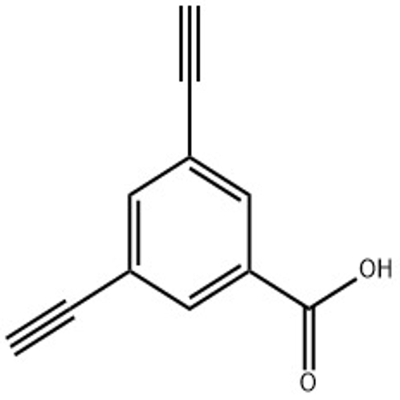-
Categories
-
Pharmaceutical Intermediates
-
Active Pharmaceutical Ingredients
-
Food Additives
- Industrial Coatings
- Agrochemicals
- Dyes and Pigments
- Surfactant
- Flavors and Fragrances
- Chemical Reagents
- Catalyst and Auxiliary
- Natural Products
- Inorganic Chemistry
-
Organic Chemistry
-
Biochemical Engineering
- Analytical Chemistry
-
Cosmetic Ingredient
- Water Treatment Chemical
-
Pharmaceutical Intermediates
Promotion
ECHEMI Mall
Wholesale
Weekly Price
Exhibition
News
-
Trade Service
4′-Methyl[2,2′-bipyridine]-4-carboxylic acid, also known as MBIAC, is an organic acid that has a wide range of applications in the chemical industry.
This compound has unique properties that make it ideal for use in various applications, including catalysts, electrochemistry, and materials science.
In this article, we will explore the different applications of 4′-Methyl[2,2′-bipyridine]-4-carboxylic acid in the chemical industry.
One of the most common applications of MBIAC is in the field of catalysts.
MBIAC is used as a building block for the synthesis of catalysts that are used in various chemical reactions.
For example, it can be used to synthesize catalysts for the polymerization of monomers, such as propylene or ethylene, to produce polypropylene or polyethylene.
These catalysts are highly efficient and can be used to produce high-quality polymers with a narrow molecular weight distribution.
In addition to its use in the synthesis of catalysts, MBIAC is also used in the field of electrochemistry.
MBIAC can be used as a ligand in electrochemical reactions, such as in the reactions that occur in batteries and fuel cells.
MBIAC can be used to improve the efficiency and stability of these reactions, which can lead to improved performance and longer lifetimes for these devices.
MBIAC is also used in the field of materials science.
MBIAC can be used to synthesize new materials, such as metal-organic frameworks (MOFs).
MOFs are materials that are made up of metal ions or atoms that are linked by organic molecules, such as MBIAC.
These materials have unique properties, such as high surface area and tunable porosity, that make them ideal for use in applications such as catalysis, gas storage, and electronic devices.
MBIAC can be used to synthesize MOFs with different structures and properties, which can be tailored to specific applications.
MBIAC is also used in the production of pharmaceuticals.
It can be used as a building block for the synthesis of drugs, such as antibiotics and anti-cancer drugs.
MBIAC can be used to modify the structure of these drugs, which can improve their efficacy and safety.
In addition to its use in the production of pharmaceuticals, MBIAC is also used in the production of agrochemicals.
It can be used to synthesize herbicides, insecticides, and fungicides that are used in agriculture to protect crops from pests and diseases.
MBIAC is also used in the production of personal care products.
It can be used to synthesize ingredients that are used in cosmetics, such as shampoos and lotions.
MBIAC can be used to improve the texture and feel of these products, as well as to improve their efficacy.
In conclusion, 4′-Methyl[2,2′-bipyridine]-4-carboxylic acid, also known as MBIAC, is a versatile compound that has a wide range of applications in the chemical industry.
It is used in the synthesis of catalysts, electrochemistry, materials science, pharmaceuticals, agrochemicals, and personal care products.
Its unique properties make it ideal for use in these different applications, and its use is expected to continue growing in the future.







